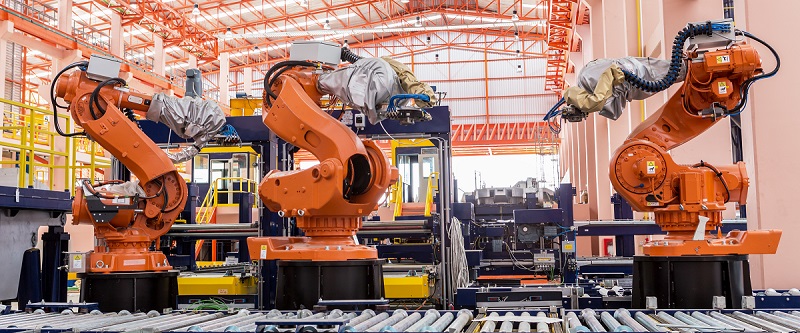The world of manufacturing landscape has undergone a massive change. From the times when customers did not have too many choices, and when your customers knew a little about search engines and online shopping. Today’s customers are highly empowered and have multiple means to shop from, the manufacturing industry has come a long way though. The advent of e-commerce has fueled the intense landscape of this business with more and more competitors flocking in this business.
So, already facing a slew of challenges such as tight margins, price fluctuations, heightened customer expectations, constantly moving stock and escalating business demands, managing different pricing at multiple outlets etc. the retailers are finding ways to keep ahead of the competition.
There needs to be a solution in place that can mitigate all manufacturing woes.
Enter SAP Business One software, which gives manufacturers a whole new level of control over operations. It allows you to manage and give customers a seamless and omnichannel experience across all touchpoints. It also allows the manufacturers to handle a number of other activities such as inventory management, tracking customer behavior, driving new customers to purchase products, and gaining new customers.
This blog gives you a rundown of all ERP software which makes the life of a retailer easier:
1) Inventory Management
With inventory management functionality, manufacturers can easily manage the quantity of inventory in hand, optimize inventory levels, handle expiry and shelf-life, and so much more. Apart from this, the retailers can have a real-time view of stock, thus ensuring quick returns. Its barcode scanning functionality makes it a quick and accurate one.
2) Sales and Analytics
A manufacturing ERP comes packed with real-time analytics and reporting through its powerful dashboard. It makes decision making faster related to sales predictions, sales figures, production planning, raw material planning, MRP, batch sizes, targets, discounts, product pricing etc. It also helps to identify the potential products and mitigating the cost related to production.
3) CRM
The Customer Relationship Management (CRM) module gives manufacturers an integrated and comprehensive view of their customers, empowering them to view all sales channels seamlessly. The manufacturers are now aware of the customers’ buying patterns, history, feedback etc., and gives a 360 view of other vital details.
4) Warehouse
This feature enables manufacturers to manage inventory flawless. It helps manage any number of stores and handle materials management.
5) Vendor & Purchase
SAP Business one implementation empowers manufacturers to define rules for procurement, and manage multiple purchase price lists, generate purchase orders based on requirements. The software boost collaborations ad encourages seamless communication thereby improving vendor and supplier relationships.
6) Discount Management
ERP system software provides operational efficiency, detailed cost insights, accurate stock control, and in-depth reporting as well as it helps manufacturers with advanced pricing and discount management feature. This results in error-free work, and satisfied customers. ERP software also helps in reducing the administrative costs that are associated with processes that are handled manually as well as offers valuable insights about the business operations, It also helps to manage different versions, facilitates future price planning, promotional discounts, and offers, etc.
7) Employee Management
The most important part of a manufacturing business is to manage their employees. A manufacturing ERP software enables them to manage their resources efficiently by keeping a record of time clocks, shift scheduling etc. The software also helps to track who’s working and which project, how long they’re working and track their working hours.
SAP implementation helps business owners meet all their critical needs one by one. From conducting sales transactions to handling several other activities, from employee management, sales management, production planning, batch control and tracking, inventory management, purchase and vendor management, returns and exchanges, to everything.


